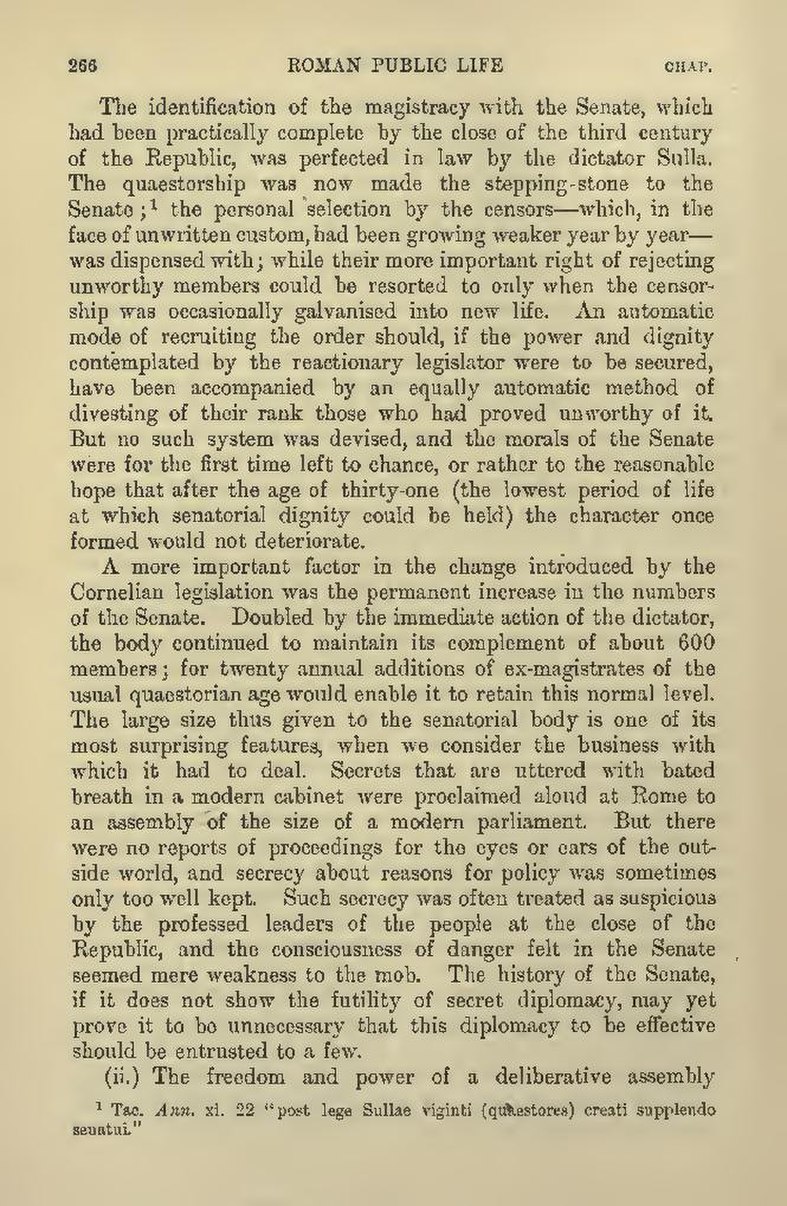The identification of the magistracy with the Senate, which had been practically complete by the close of the third century of the Republic, was perfected in law by the dictator Sulla. The quaestorship was now made the stepping-stone to the Senate;[1] the personal selection by the censors—which, in the face of unwritten custom, had been growing weaker year by year—was dispensed with; while their more important right of rejecting unworthy members could be resorted to only when the censorship was occasionally galvanised into new life. An automatic mode of recruiting the order should, if the power and dignity contemplated by the reactionary legislator were to be secured, have been accompanied by an equally automatic method of divesting of their rank those who had proved unworthy of it. But no such system was devised, and the morals of the Senate were for the first time left to chance, or rather to the reasonable hope that after the age of thirty-one (the lowest period of life at which senatorial dignity could be held) the character once formed would not deteriorate.
A more important factor in the change introduced by the Cornelian legislation was the permanent increase in the numbers of the Senate. Doubled by the immediate action of the dictator, the body continued to maintain its complement of about 600 members; for twenty annual additions of ex-magistrates of the usual quaestorian age would enable it to retain this normal level. The large size thus given to the senatorial body is one of its most surprising features, when we consider the business with which it had to deal. Secrets that are uttered with bated breath in a modern cabinet were proclaimed aloud at Rome to an assembly of the size of a modern parliament. But there were no reports of proceedings for the eyes or ears of the outside world, and secrecy about reasons for policy was sometimes only too well kept. Such secrecy was often treated as suspicious by the professed leaders of the people at the close of the Republic, and the consciousness of danger felt in the Senate seemed mere weakness to the mob. The history of the Senate, if it does not show the futility of secret diplomacy, may yet prove it to be unnecessary that this diplomacy to be effective should be entrusted to a few.
(ii.) The freedom and power of a deliberative assembly
- ↑ Tac. Ann. xi. 22 "post lege Sullae viginti (quaestores) creati supplendo senatui."
